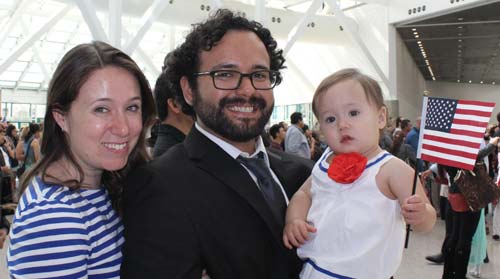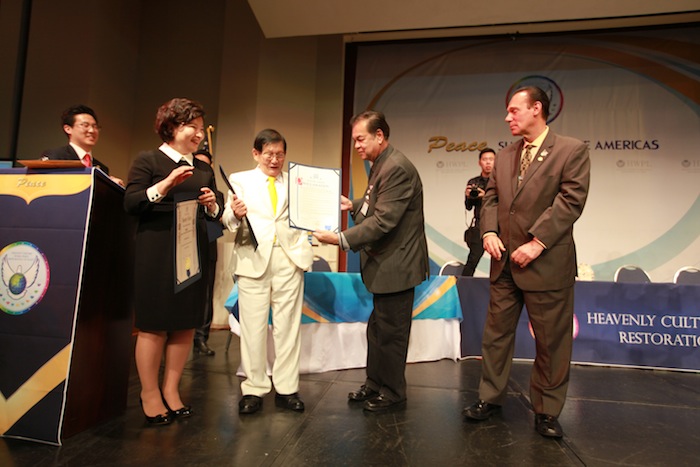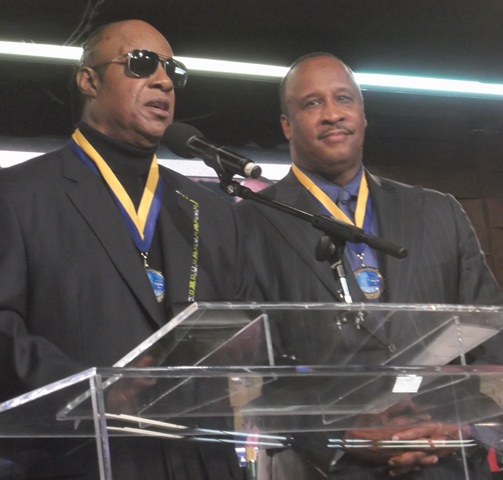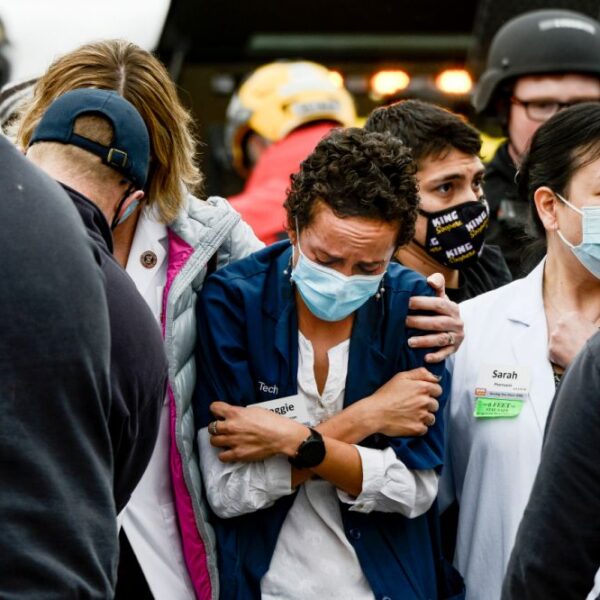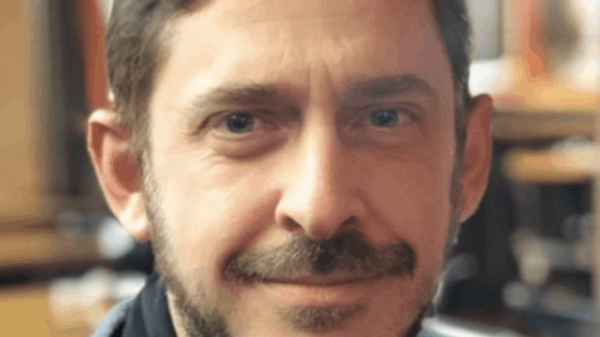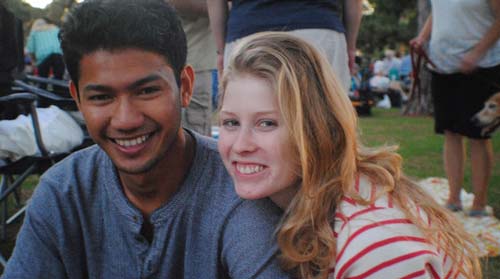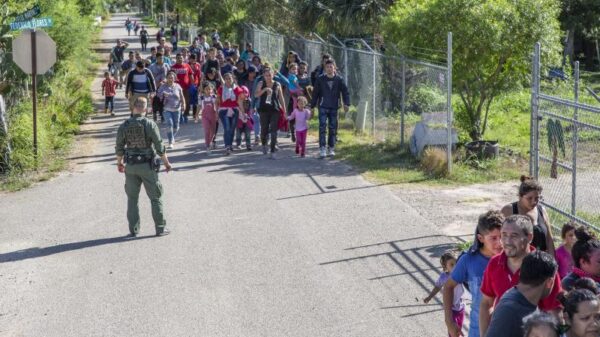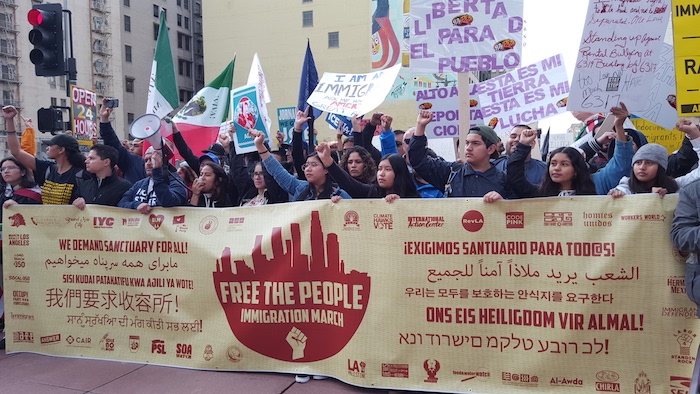Pictured above: Carlos Amador with his family. Amador was 14 when he came to the United States and 30 when he was finally able to get citizenship. Photo by Eloisa Amador.
Last month, after over a decade living undocumented in the United States, I became a citizen. As I watched my family waving and cheering during the ceremony, I was overcome with a strange rush of emotions.
I felt joy to finally reach this milestone. But it was also a surreal moment.
For the vast majority of undocumented people, including many of my loved ones, there simply is no “line” to get into for legal status. And even in the small number of cases like mine where a series of lucky chances does open a path, you can’t walk it alone.
I never would have reached this point without the support of a strong network of community organizations and leaders.
As I hugged my baby daughter and my family after the ceremony, I kept thinking that my work for a better society needs to continue. I am currently an organizer for the California Immigrant Policy Center, where I focus on building bridges with amazing grassroots coalitions across the state. I hope when my daughter is my age, she will see a more inclusive future.
The fight for immigrant rights has many facets, from ending deportations to ensuring immigrants’ full inclusion in our communities. One small step, that could have big benefits, is expanding the circle of community-led education and outreach to help immigrants seize new opportunities.
Through a state budget proposal called “One California,” we can do just that. This comes at a crucial time. After years of organizing, a door to temporary relief for some undocumented Californians like my parents will eventually open through new deferred action programs. Meanwhile, another two-and-a-half million Californians are eligible to apply for citizenship, but face many obstacles.
One California would dedicate $20 million to support community-based outreach, education, and application help for both citizenship and deportation relief. The measure is gaining significant support, with hundreds of immigrants slated to gather in Sacramento next Monday for the 19th annual Immigrant Day. One California is one of four key priorities for the day, which will see some 500 immigrants mobilize for a rally and visits to their legislators.
While other states continue down an anti-immigrant path, my family’s story shows why California must double down on its commitment to immigrant inclusion.
We arrived in the U.S. with tourist visas in 1999. While my mom’s U.S. citizen sister filed a petition for us nearly 15 years ago, it’s trapped in a massive backlog. When our tourist visas expired, we became undocumented.
We started growing roots in our new community, but it has been far from a smooth journey. From having difficulties finding jobs, paying college tuition without financial aid, dealing with the emotional and economic impact of my brother and cousin’s deportation, we have endured tremendous hardship and heartbreak.
We overcame many of these hardships thanks to the support of community organizations which provided us with resources like information on health services and food supplies- and the hope that things would eventually improve.
I found refuge in a growing field of undocumented youth activists sprouting on campuses and community spaces across the nation. Working and living with other undocumented people reminded me I was not alone in this struggle.
And I got lucky. Because my U.S. citizen partner and I got married — and because, under convoluted immigration rules, I had come on a visa — the door to Legal Permanent Residency finally opened for me in the summer of 2011. I still remember the moment that my green card came in the mail. Relief ran through my body. But my thoughts turned immediately to my family and peers, still undocumented. Their support helped me reach this status.
Three years later, Asian Americans Advancing Justice – Los Angeles helped me fill out my citizenship application through their citizenship services program. Now, I am now one of nearly five million naturalized citizens living in California.
The benefits that come with citizenship are significant, with earnings increasing between 10 to 14 percent, and increased rates of homeownership and civic participation. But although almost 2.5 million Californians are eligible for citizenship — more than the population of Alameda and San Francisco Counties combined — the lack of support and high cost pose challenges.
The temporary deportation relief programs which immigrants fought to win will also bring strong benefits to the state. While we wait for an expansion of these programs to go into effect, we can already see the benefits of the existing DACA program. From watching my sister — a DACA recipient – -buy her first brand-new car, to friends who are embarking on their professional careers, the program is truly changing people’s lives.
But here again, barriers will stand in the way of folks applying — and many are left out.
As I celebrate this milestone, I am reminded once again I could not have gotten this far alone. It’s taken a village – family, friends, and a strong network of community organizations.
Today, state leaders have a golden opportunity to support these networks and help people like me achieve their goals and dreams.
Carlos Amador is lead organizer of the California Immigrant Policy Center (CIPC), a statewide organization dedicated to advancing inclusive policies that build a prosperous future for all Californians.

